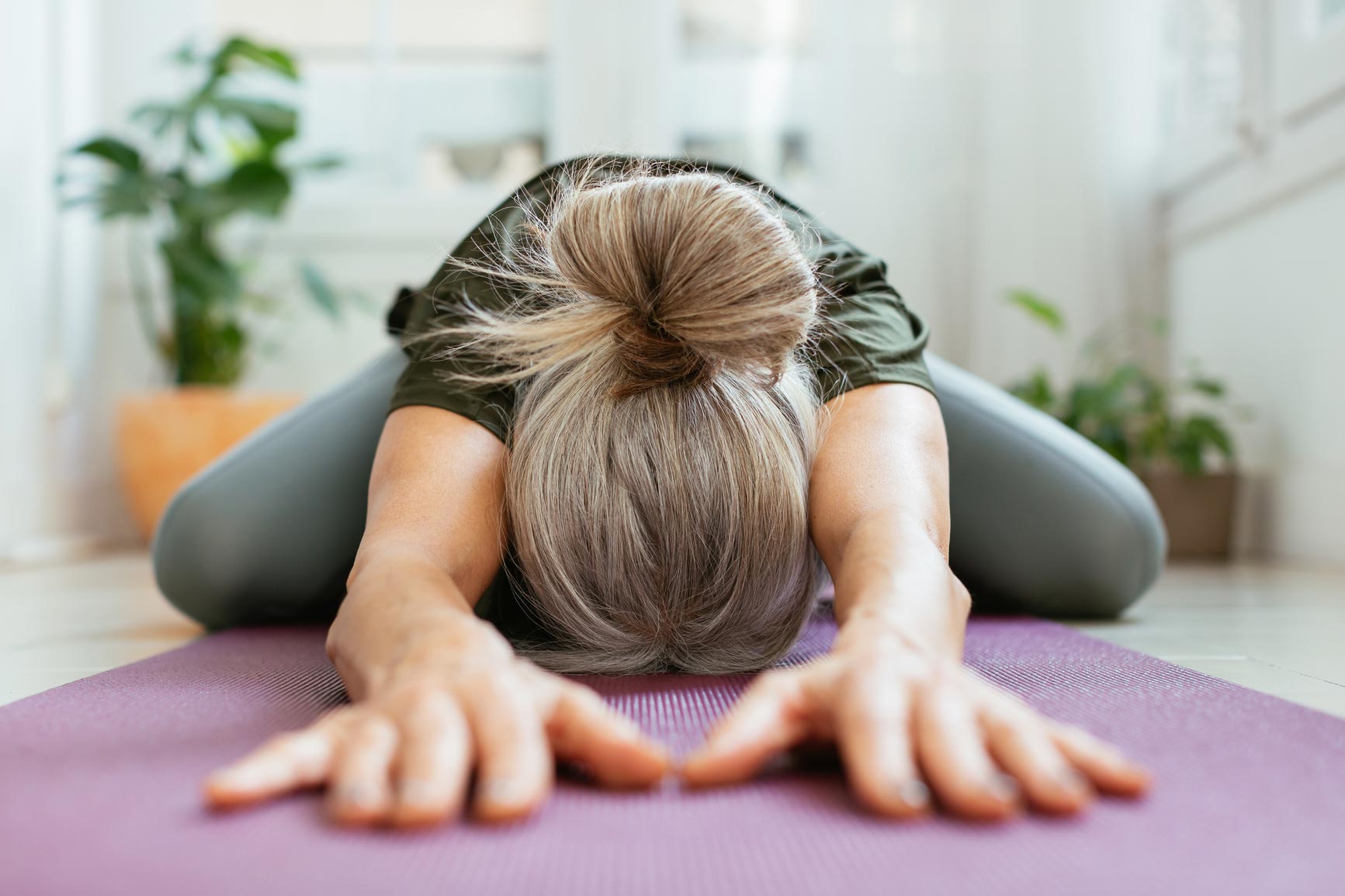In any given year, approximately 40 million people in the United States experience an anxiety disorder — and 1 in 13 people suffer globally.
Most recently, COVID-19 has caused increased rates of isolation and unemployment, which has taken a significant psychological toll. Health experts are concerned about these potential effects, as the nation experiences a second pandemic — one that involves overwhelming feelings of stress and anxiety.
If you can relate, you must take proactive action. One option is to take control of your mental and physical health through the art of yoga and meditation.
The Psychological Impact of a Pandemic
Although there is a long history of infectious disease, that does not make an outbreak any less stressful. As stated by Psychology Today, there are three main reasons why germ-panic impacts our psyche so strongly.
Infectious diseases are:
- Invisible
- Easily passed from person-to-person
- Imminent
Related: Managing Your Mental Health During the Coronavirus
COVID-19 is no exception and the effects are being felt around the world. Due to empty store shelves, social isolation, health concerns, loss of employment, and other variables, pandemic anxiety continues to increase — but you can intervene!
Why Practice Yoga During the COVID-19 Outbreak?
Since limiting face-to-face contact is the best way to reduce the spread of COVID-19, people around the country (and globe) are staying indoors.
Both exercise and mindfulness meditation have been shown to help reduce feelings of anxiety. Yoga is the perfect solution, as this stress-reduction technique has been shown to:
- Increase physical activity
- Inspire a healthier diet
- Improve sleep quality
- Reduce stress levels
- Reduce motivation to drink and smoke
- Increase the brain chemical GABA, which produces a calming effect
- Reduce the cortisol, “the stress hormone”
The best part is, there are many styles of yoga, ranging from high-activity to relaxing options. Regardless of your level of experience, you can get started.
Tips to Help You Cope with Coronavirus Anxiety
If you have never tried yoga before, there’s no better time than the present. By learning new things about this ancient practice, you will benefit from a healthy distraction. Here’s an excellent guide to get you started.
For those of you who are experienced, why not take this time to teach your friends and family! Zoom is a great video communication service that will allow you to connect from the comfort of each participant’s home.
You can also focus your attention on:
- Meditation — Regular meditation is calming and can be practical anytime, anywhere. Headspace is one of the leading apps available, as it is designed based on clinically-validated research.
- Controlled, deep breathing — Again, deep breathing exercises are something in which you can begin to implement into your everyday routine. Research has shown that abdominal breathing for 20 to 30 minutes each day can help reduce anxiety and stress. Try these 8 breathing exercises to help curb feelings of anxiety.
Remember, it’s normal to feel some level of stress and anxiety during this time. However, too much anxiety can begin to cause harm, taking a toll on your emotional and physical well-being.
In order to better cope with COVID-19 anxiety, it’s important that you take action. If you were seeing a therapist for an anxiety disorder prior to the outbreak, discuss your options regarding video therapy.
Stay connected to friends and family, help others if you can, cut back on the amount of time you spend on social media, and practice self-care. For ongoing support during the COVID-19 pandemic, please refer to these beneficial resources.







